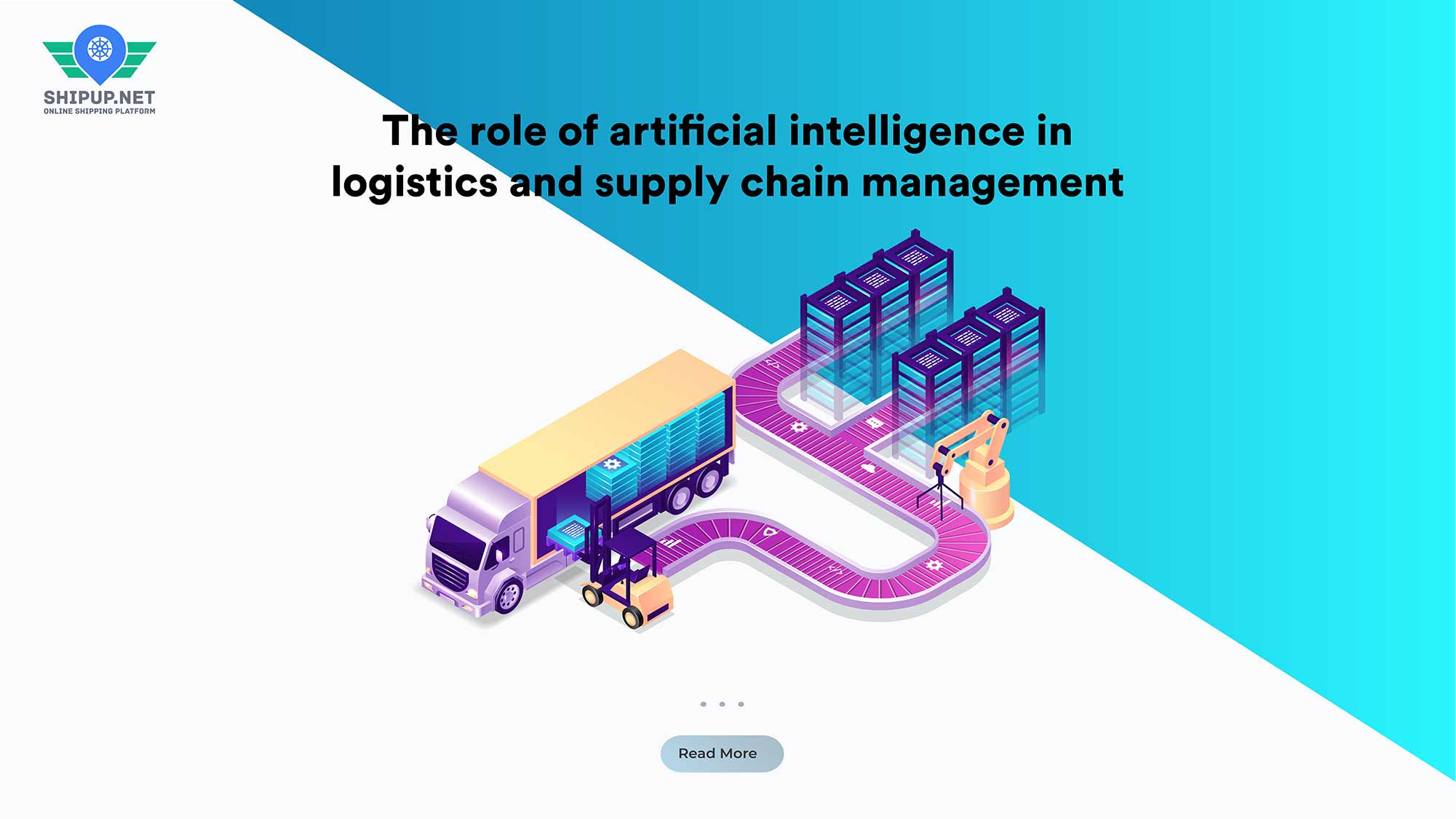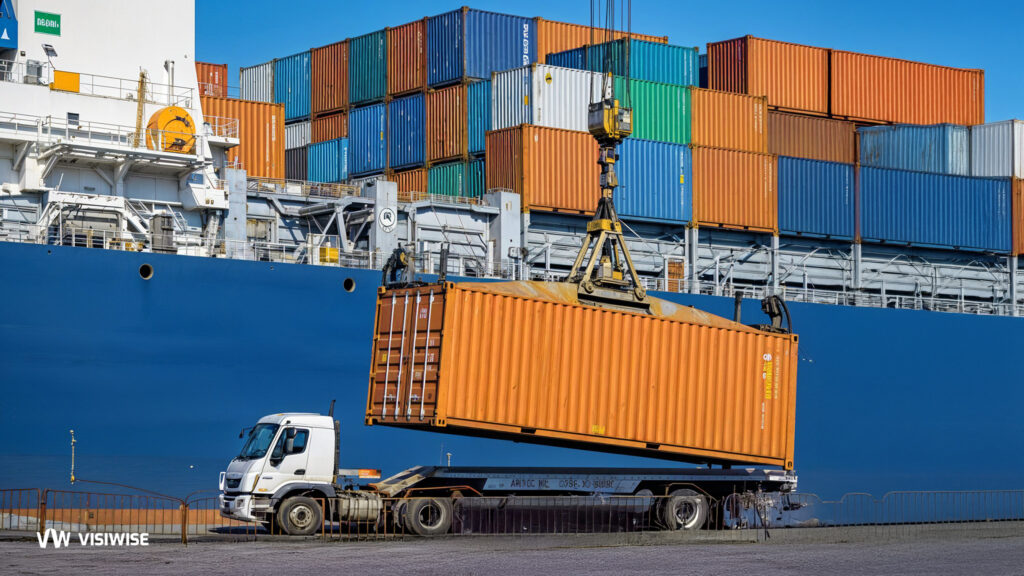The age of Artificial Intelligence (AI) has taken the supply chain industry by storm, and the fascination around its integration continues to grow among supply chain professionals. Here at Visiwise, we’ve embraced AI to facilitate international supply chain and logistics management, pushing the boundaries of this game-changing trend. The complexity of managing the flow of goods and services has posed challenges for businesses that require efficient logistics network management. AI offers an array of tools that can help companies streamline their operations and optimize their logistics network to overcome these challenges.
In today’s fast-paced and competitive business environment, an efficient supply chain management system is no longer just an option but a necessity. Falling behind in the race to keep up with market changes and customer demands can leave businesses at a disadvantage. An optimized logistics network is crucial for companies to stay ahead of the game, meet customer demands, and improve operational efficiency. This is where the integration of AI comes into play, providing companies with the tools they need to forecast demand, optimize routes, automate tasks, manage inventory, and ensure compliance with regulations.
The logistics network is becoming increasingly complex, and managing it has become a daunting task for supply chain professionals. The need for transparency and traceability, the demand for optimized resource utilization, and the pressure to comply with regulations are just some of the challenges faced by businesses today. AI can help businesses navigate these challenges by providing them with the tools to manage and optimize their logistics network. Visiwise Visibility Platform uses Ai to automatically detect the carrier of shipment just by using their reference numbers. Also, you get analytics data about your operation, all by artificial intelligence.
With AI, companies can gain real-time insights into their operations, forecast demand, automate tasks, and optimize routes to ensure the timely and cost-effective delivery of goods and services. In conclusion, the integration of AI in supply chain management can help businesses streamline their operations and improve their logistics network’s efficiency, ensuring that they remain competitive in today’s fast-paced business environment.
What’s the Future of AI in Supply Chain Management?
Artificial Intelligence (AI) has already made significant strides in the supply chain industry, and the future looks even brighter. With the continued advancement of technology and the increased availability of data, AI is poised to revolutionize logistics network operations further. One area where AI is expected to have a significant impact is increased automation. AI will automate more tasks, allowing companies to operate more efficiently and freeing up human resources to focus on other areas.
Another area where AI is expected to play an increasingly important role is predictive analytics. As AI becomes more sophisticated, it will be able to predict demand and identify patterns, allowing companies to make more informed decisions. Real-time monitoring is also expected to see significant growth in the future, as AI-enabled sensors and IoT technology allow companies to monitor their supply chain operations in real-time, providing valuable insights that can inform decision-making.
Collaborative AI is another exciting development that will connect different parts of the logistics network and enable collaboration between partners, suppliers, and customers to optimize operations. The ability to share data and insights in real-time will result in more efficient and effective supply chain operations. Advanced robotics is another area where AI will play a vital role, as it will be integrated with autonomous vehicles and robots to handle order picking, packing, and transportation tasks. This will result in more accurate and efficient operations while reducing labor costs.
Finally, AI integration with Blockchain technology will be another area of focus in the future, making the logistics network more transparent and secure. AI will enable companies to track products and materials as they move through the logistics network in real time, providing greater visibility and security. As the industry adapts and evolves, AI will continue to be a key component in developing new technologies and processes that will shape the future of logistics network management.
In conclusion, the future of AI in supply chain management is promising, and the technology will continue to play a critical role in optimizing operations and helping companies remain competitive. With increased automation, advanced predictive analytics, real-time monitoring, collaborative AI, advanced robotics, and blockchain technology integration, companies will be able to operate more efficiently, make better-informed decisions, and provide greater transparency and security in the logistics network. As supply chain professionals continue to embrace AI, we can expect to see further advancements and improvements in the industry in the coming years.
The Advantages of AI in Supply Chain and Logistics Management
Artificial intelligence is transforming the world of supply chain and logistics management. By harnessing the power of AI, companies can streamline their operations, reduce costs, and improve their bottom line. One of the most significant benefits of AI in this industry is the ability to automate tasks such as demand forecasting, route optimization, and inventory management. This allows companies to operate more efficiently, reducing the time and resources required to complete these critical functions.
In addition to improving efficiency, AI can also help companies reduce labor and transportation costs. By identifying inefficiencies and automating tasks, companies can optimize their logistics network, resulting in a more streamlined and cost-effective operation. These cost savings can be passed on to customers, resulting in increased revenue and improved profitability for the business.
Another significant advantage of AI in supply chain and logistics management is the ability to make better-informed decisions. By analyzing vast amounts of data, AI algorithms can identify trends and patterns, providing valuable insights that can inform strategic decision-making. This allows companies to make more informed decisions about inventory management, transportation routes, and other critical aspects of their operations.
Finally, AI can help improve customer service by providing real-time tracking information to customers. This allows customers to track their orders and receive updates on delivery times, resulting in a more responsive and satisfying customer experience. In today’s competitive marketplace, excellent customer service is critical, and AI can help companies achieve this by providing real-time visibility and transparency throughout the logistics network.
Artificial intelligence is transforming supply chain management by providing real-time insights and predictions that allow companies to streamline their operations and make informed decisions. One such example is the use of predictive analytics to identify patterns in customer behavior and improve order accuracy, reducing returns and improving customer satisfaction.
Real-world Examples of Ai in Supply Chain and Logistics
Another application of AI in supply chain management is the use of chatbots and virtual assistants to provide real-time support to customers and suppliers. These AI-powered tools can answer frequently asked questions, track shipments, and provide instant feedback, reducing the workload on customer service representatives and improving response times.
In addition to improving efficiency and customer satisfaction, AI is also being used to address sustainability concerns. For example, by analyzing shipping routes and modes of transportation, AI algorithms can help companies reduce their carbon footprint and make more environmentally-friendly decisions.



